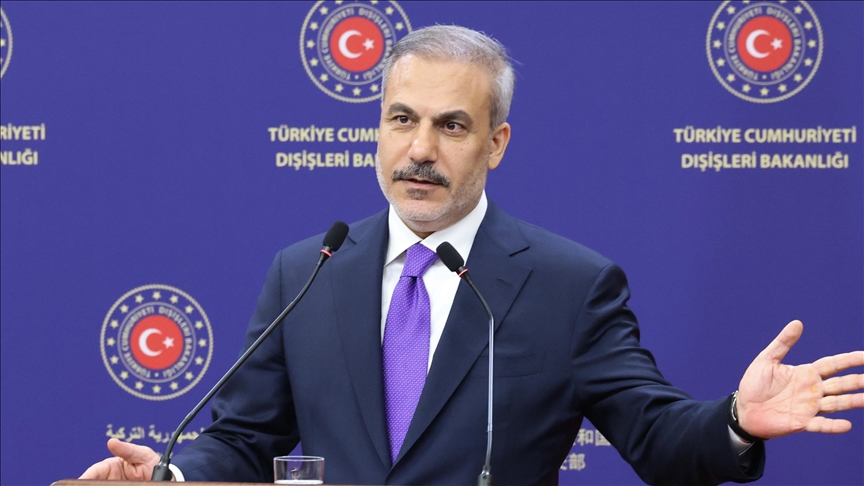UK Tourists To Turkey: New eSIM Restrictions Could Disrupt Travel: Here’s What You Need To Know – Travel And Tour World
Monday, July 28, 2025

One of the world’s most visited countries, Turkey sees millions of tourists from the UK each year. As the sun-kissed land has beautiful beaches, lively cities, lavish culture and irresistible cuisine, the nation has become a preferred destination for summer vacations, corporate visits and cultural sightseeing. But people making plans to travel in 2025 are now having to contend with further restrictions that may have an impact on their trip, especially with regards to mobile connectivity and entry policies. Updates for summer are the name of the game here and the UK Foreign, Commonwealth & Development Office has updated its advice for those travelling to Turkey – focusing on eSIMs and passport validity.
eSIM Restrictions Impacting UK Tourists
For many UK travellers, eSIMs have become the go-to solution for staying connected while abroad. This technology, which allows users to download a virtual SIM card instead of using a physical one, has revolutionised the way people manage their mobile data while travelling. Offering affordable rates and the convenience of not having to swap physical SIM cards, eSIMs have been particularly popular for British tourists heading to destinations like Turkey, where tourists often rely on mobile data for navigation, bookings, and communication.
However, a recent travel advisory from the FCDO has alerted tourists to a significant change in Turkey’s regulations. In an update shared by the FCDO via Gov.uk, the Turkish Information and Communication Technologies Authority (BTK) has imposed restrictions on the activation and management of eSIM services within the country. This means that travellers arriving in Turkey will no longer be able to activate or change eSIMs upon arrival.
As a result, anyone planning to use an eSIM for mobile data in Turkey must ensure that their digital SIM is fully downloaded and activated before they leave the UK. This crucial step will allow tourists to stay connected without relying on public Wi-Fi, which often comes with security risks. For businesses in the travel and tourism industry, this shift presents an opportunity to advise clients on how to prepare for their trip, ensuring their eSIMs are properly set up before departure.
Impact on the Tourism and Travel Sector
The sudden eSIM restriction could have a wide-reaching impact on the travel and tourism industry. Tour operators, travel agencies, and mobile service providers will need to adjust their advice and information for customers heading to Turkey. With many UK holidaymakers depending on their phones for navigation, translation, and bookings, the inability to activate an eSIM in Turkey could lead to frustration, especially for those not familiar with local SIM card procedures.
As mobile data has become an essential part of the travel experience, tourism businesses should consider offering solutions or partnerships with eSIM providers who allow early activation. Alternatively, they might want to guide customers towards purchasing a local SIM card upon arrival or using roaming services. Travel agencies could also emphasize the importance of researching mobile data options before booking, highlighting the need to activate eSIMs before leaving the UK.
What UK Travellers Need to Know
In addition to the eSIM restrictions, UK travellers should be aware of the passport requirements for entry into Turkey. The FCDO has clarified that anyone entering Turkey must have a passport with at least 150 days’ validity from the date of arrival and at least one blank page for stamping. This is a key consideration for tourists planning to visit in 2025, as many may not realise that their passport doesn’t meet these criteria until it’s too late. Failure to comply with these requirements can lead to denied entry at the border, causing costly delays and frustration for both tourists and tour operators.
For those organising group tours or managing travel logistics, these passport stipulations should be clearly communicated well in advance of departure to avoid any disruptions at the airport. Travel agencies and tour operators could offer services to help clients check their passport validity before booking or encourage them to renew passports promptly.
The Role of Travel Insurance
Travel insurance is always an essential part of any holiday planning, but with the new changes in Turkey’s eSIM policy and passport entry requirements, it becomes even more critical. The FCDO has reiterated the importance of having adequate travel insurance to cover a range of potential issues, including cancellations, medical emergencies, lost luggage, or unforeseen disruptions to travel plans. For those impacted by eSIM connectivity issues or passport-related delays, comprehensive insurance coverage can offer peace of mind.
Tourism businesses, including airlines, hotels, and travel agencies, should take this opportunity to remind customers of the need for appropriate travel insurance. Partnering with insurance providers to offer easy access to policies could be a valuable service, ensuring that clients are well-prepared for any unexpected situations.
Steps the Tourism Industry Can Take
The tourism industry plays a key role in ensuring that UK travellers are well-prepared for their trips to Turkey. Here are a few steps that can be taken to help mitigate the impact of these new regulations:
Education and Communication: Travel agents, tour operators, and airlines should actively communicate with customers about the eSIM activation requirements and passport validity before their trip. Proactively providing information via email, websites, and social media can help avoid confusion and frustration.
Partnering with eSIM Providers: Travel agencies could explore partnerships with eSIM providers that allow for early activation. This would ensure that customers are prepared before they board their flights.
Emphasising Travel Insurance: Offer customers comprehensive travel insurance that covers a wide range of situations, including trip cancellations, medical emergencies, and connectivity issues. This will give travellers peace of mind in case things don’t go as planned.
Passport Check Services: Consider offering services to help clients check the validity of their passports and ensure they meet the necessary entry requirements for Turkey. A small fee for this service could add value for clients and streamline the travel planning process.
Conclusion
Turkey continues to be one of the world’s most popular holiday destinations, but for those of us in the UK, we need to keep ourselves up to date with travel guidance as it stands. When eSIM restrictions and passport expiry limitations are implemented the travel sector will need to adapt and issue clear instructions to customers travelling to Turkey in 2025.” Tourists can prepare beforehand to stay out of trouble when making travels to the Republic. Whether this be through partnership with mobile providers, insurance services, or making sure passport requirements are in line, the tourism industry has a duty to help support UK tourists through these changes.





